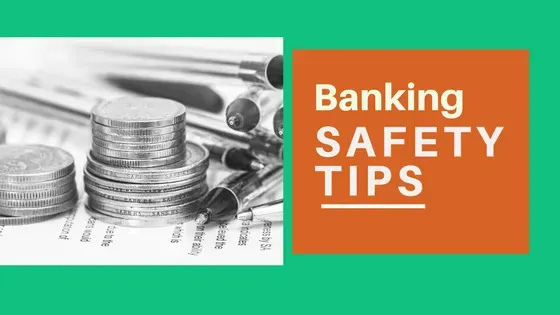In recent weeks, the stability of the banking sector has come under scrutiny following the sudden collapses of several major institutions, including Silicon Valley Bank, Signature Bank, and Silvergate Bank. These events have raised a critical question for consumers: Are your bank accounts truly safe? This article dives into the factors contributing to these failures, particularly the impact of rising interest rates on bond valuations. By exploring the dynamics of the banking crisis and providing insights on safeguarding your finances, we aim to equip you with the knowledge needed to navigate these turbulent waters with confidence.
| Bank Name | Reason for Collapse | Impact of Interest Rates |
|---|---|---|
| Silicon Valley Bank | Loss in value of bond portfolio | Higher interest rates decrease the value of existing bonds. |
| Signature Bank | Details not specified | Effect of rising rates not detailed |
| Silvergate Bank | Details not specified | Effect of rising rates not detailed |
Understanding Recent Bank Failures
Recently, three banks have made headlines due to their unexpected collapses. These banks—Silicon Valley Bank, Signature Bank, and Silvergate Bank—have raised concerns among many people about the safety of their own bank accounts. It’s important to understand what happened to these banks and the reasons behind their failures. By learning about these events, you can help protect your money and make informed decisions about your finances.
Silicon Valley Bank was the most notable of the three, as it faced significant challenges due to a drop in the value of its bond portfolio. When banks invest in bonds, they expect to earn a certain return. However, if the value of those bonds declines, it can lead to huge losses for the bank. This situation highlights the importance of understanding how banks operate and how external factors, like interest rates, can impact their stability.
The Impact of Rising Interest Rates
One of the main reasons for the failure of these banks is the rapid increase in interest rates over the past year. When the Federal Reserve raises interest rates, it affects the entire economy, including the value of bonds. Existing bonds with lower interest rates become less appealing to investors, leading to a decline in their market value. This can create significant problems for banks that hold these types of bonds.
For example, if a bank has a large number of bonds with low interest rates and new bonds become available with higher rates, the older bonds lose value. This loss can severely impact the bank’s financial health and may even lead to insolvency. Understanding how interest rates work is crucial for anyone who wants to keep their money safe and make smart financial choices.
How to Protect Your Bank Accounts
With the recent bank failures, many people are concerned about the safety of their own bank accounts. To protect your money, it’s essential to choose a bank that has a strong reputation and a history of stability. Look for banks that are insured by the Federal Deposit Insurance Corporation (FDIC), which protects deposits up to $250,000. This way, even if something goes wrong, your money is still safe.
Additionally, keep an eye on your bank’s financial health by reading their reports and news updates. If you notice any red flags or signs of trouble, it might be time to consider moving your money to a more secure institution. Staying informed and proactive can help you protect your savings and ensure your financial well-being.
The Role of the Federal Reserve
The Federal Reserve plays a crucial role in managing the economy, including setting interest rates. When the Fed raises interest rates, it is usually to combat inflation or stabilize the economy. However, rapid increases can have unintended consequences, like the ones we’ve seen with recent bank failures. Understanding the Fed’s actions can help you make better financial decisions.
As a citizen, you should stay informed about the Federal Reserve’s policies. This knowledge can help you anticipate changes that might affect your savings and investments. By being aware of how interest rate changes can impact banks, you can better prepare for potential risks to your financial security.
What to Know About Bank Investments
Banks invest in various assets, including bonds, to generate income. However, not all investments are equally safe. Understanding the types of investments your bank makes can give you insight into its overall stability. Some investments, like government bonds, are generally considered safer, while others can be riskier and lead to significant losses.
When choosing a bank, consider asking about its investment strategies. A bank that invests wisely and conservatively is less likely to face sudden financial issues. By understanding how your bank manages its investments, you can feel more confident about where your money is stored.
Recognizing Signs of Financial Trouble
It’s important to know the signs that a bank might be in trouble. These can include frequent changes in management, unusual fees, or poor customer service. If you notice any of these signs, it may be a good idea to reassess your banking situation. Staying alert can help you take action before it’s too late.
Additionally, pay attention to news about your bank and the banking industry as a whole. Financial experts often share insights that can help you understand potential risks. By being proactive, you can make choices that protect your savings and keep your accounts safe.
The Importance of Financial Literacy
Financial literacy is the ability to understand and manage your money effectively. In today’s world, it’s more important than ever to be financially savvy, especially with the recent bank failures. Learning how banks operate, understanding investments, and knowing how to protect your money can empower you to make better financial decisions.
By improving your financial literacy, you not only safeguard your own money but also contribute to a healthier economy. When individuals understand their finances, they can support businesses and make informed choices that benefit everyone. Start educating yourself today to secure your financial future!
Frequently Asked Questions
What caused the recent bank collapses?
The recent bank collapses, including Silicon Valley Bank, were primarily due to significant losses in their bond portfolios, worsened by rapid increases in interest rates.
How do interest rates affect bond values?
When interest rates rise, existing bonds with lower rates lose value, as new bonds offer better returns, making older bonds less attractive.
What happened to Silicon Valley Bank?
Silicon Valley Bank collapsed due to complex financial issues, notably a sharp decline in the value of its bond portfolio.
Are my bank accounts safe?
Generally, bank accounts are safe, especially if they are insured by the FDIC, which protects deposits up to $250,000.
What is the FDIC?
The FDIC, or Federal Deposit Insurance Corporation, is a U.S. government agency that insures deposits in banks, ensuring customer money is protected.
How can I ensure my bank is safe?
To ensure your bank is safe, check if it’s FDIC-insured, review its financial health, and stay informed about any news regarding its stability.
What should I do if I am worried about my bank?
If worried, consider diversifying your funds across multiple banks, regularly checking bank health reports, and speaking to a financial advisor for guidance.
Summary
In recent days, three banks—Silicon Valley Bank, Signature Bank, and Silvergate Bank—have collapsed, raising concerns about bank safety. Silicon Valley Bank, which received the most media coverage, failed due to losing value in its bond investments. This loss is linked to the Federal Reserve increasing interest rates quickly over the past ten months, which makes older bonds with lower rates less valuable. Understanding these events is crucial for ensuring the safety of your bank accounts. Stay informed about your bank’s health to protect your finances effectively.
Source link



